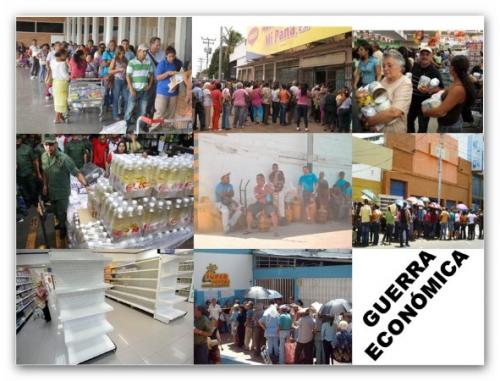Challenges of the Bolivarian Revolution
- Opinión

The present socio-economic situation of Venezuela provides an account of two political and economic models. On the one hand, the rentier Venezuelan capitalism, with a parasitic economic class (that came to concentrate 90% of the wealth, representing some 30 families); and on the other, a new political-economic model established in favour of the impoverished majorities, led by Comandante Hugo Chavez and now by Nicolas Maduro, based on the collective practices and theoretic construction of Socialism of the XXI century.
From the beginnings of the Bolivarian Revolution, the attacks against the new economic model became evident, by not permitting the sovereign control of the petroleum industry (2002). This struggle was won by the Venezuelan people, beginning a period of social investments and infrastructure that managed to reduce extreme poverty from 20.3% (1998) to 9.5% (2007). In spite of this immense effort of the Venezuelan people, the oligarchy remained intact, expressed in their control of key sectors of the economy, such as manufacturing (food), construction, telecommunications and finally, but most importantly, the banking sector and insurance activity. The economic war against the Bolivarian model of social inclusion began to take form precisely in that year, with programmed food shortages and the underutilization of installed capacities in the manufacturing sector, all this with the intention of internally “breaking” the Venezuelan productive apparatus, as a reaction to the policy of defense of agro-food and economic sovereignty implemented by the Chavist government.
At the end of the year 2010, always with the support of the US government, the Venezuelan bourgeoisie tuned their strategy of “rollback”, which in computing refers to the restoration of a former function or rebooting the system, and in socio-political terms is employed as a synonym of turning back, to return to the old order, to the previous system, reversion of changes, detaining the transformation process. In economic terms, this is expressed in:
--Prohibition of the sale of medicines and food to the Venezuelan government, robbery of assets (in CITGO, MONOMEROS, ETC).
--Pressure on oil prices (increase of the offer of oil due to fracking and from Libya and Iraq, sovereign reports on reserves, manipulation of financial markets).
--Use of the risk rating (Venezuela is one of the countries that pays the most expensive credits of the planet; we have almost 50 percentage points of surcharge).
--Monetary and financial manipulation (double accumulation of capital in Bolivars and Dollars, retention of remittances, suspension of external financing, hyperinflation).
In May 2019, the Central Bank of Venezuela (BCV) published data on the dramatic national economic situation: the Gross Domestic Product (GDP) contacted by 50% in the period 2013-2018. In simple terms, what was obtained in 14 years was destroyed in 5. This without mentioning substantive advances in healthcare, housing, education, recognized by the United Nations and other international organizations, that today are affected by this war, with disastrous effects on food supply, health and security, national productivity and the quality of life in general terms.
Economic recuperation demands surmounting the rentier model and this can only come about with the development of the communal economic system, driving popular power to combat and overcoming the exploitation of labour, political oppression and cultural domination. We know that there are internal currents (within Chavism) that do not move in this direction, there are sectors that support the privatization of public services and state enterprises, others who speak of “market socialism”, inspired by the Chinese model.
We are at present in a complex geopolitical scenario, the Bolivarian revolution supports a new international financial architecture, the debates mentioned above are valid and necessary, but our people are focused on resisting the sanctions of the US Empire and its allies (for which we ask for solidarity on the part of the peoples of the world); but at the same time, we express the fact that this is a people that will struggle relentlessly to guarantee our well-being and the reproduction of our national-communitarian life, a full life for all.
03/06/2019
(Translated for ALAI by Jordan Bishop)
– Exeario Sosa Ocanto is a political scientist, Bishop of the Venezuelan Evangelical Pentecostal Union of Venezuela.
https://www.alainet.org/es/articulo/200203
Del mismo autor
- Desafíos de la Revolución Bolivariana (V) 27/06/2019
- Desafíos de la Revolución Bolivariana (IV) 10/06/2019
- Challenges of the Bolivarian Revolution 10/06/2019
- Desafíos de la Revolución Bolivariana (III) 03/06/2019
- Desafíos de la Revolución Bolivariana (II) 28/05/2019
- Desafíos de la Revolución Bolivariana (I) 22/05/2019








